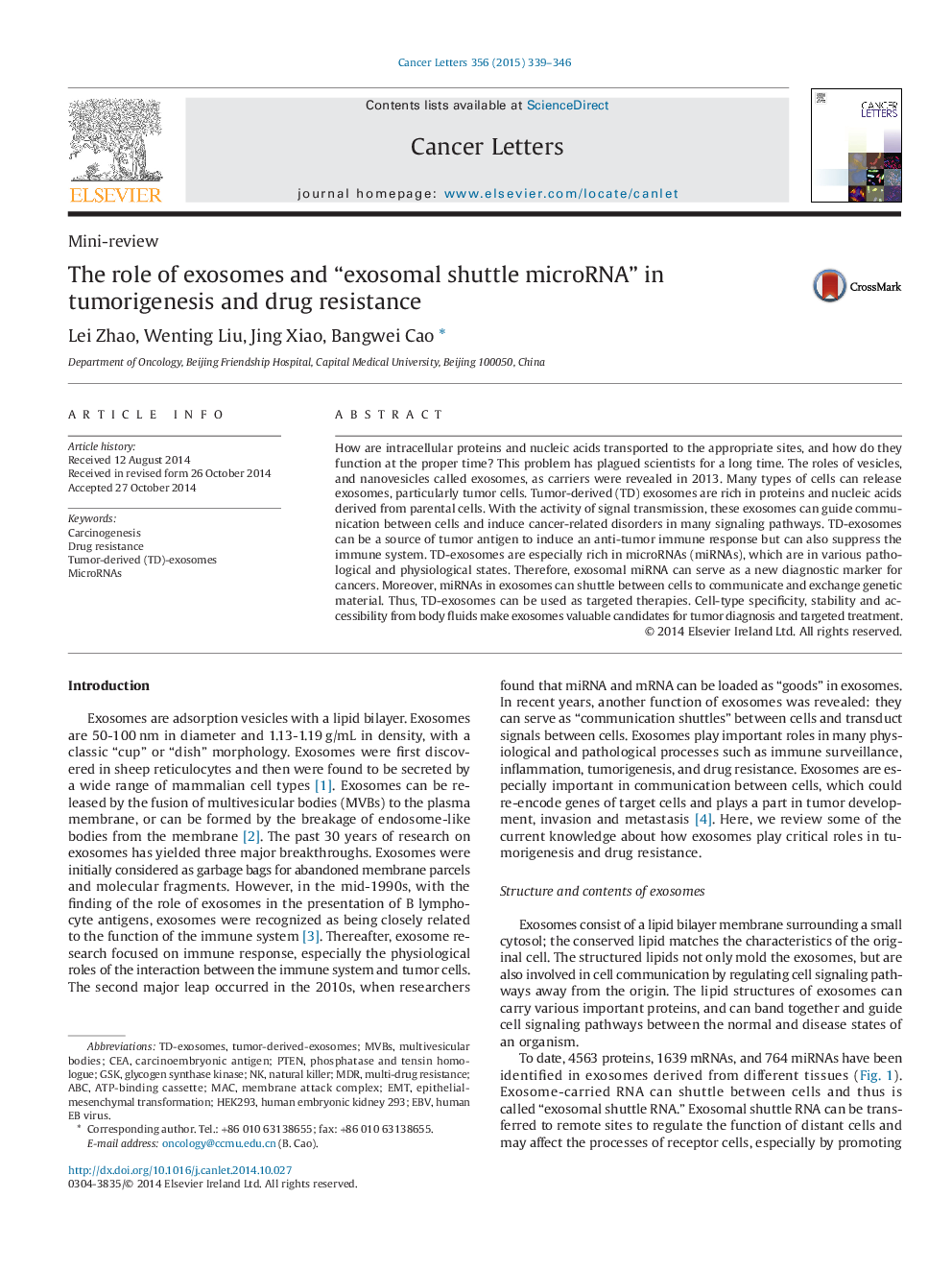| کد مقاله | کد نشریه | سال انتشار | مقاله انگلیسی | نسخه تمام متن |
|---|---|---|---|---|
| 10899666 | 1084401 | 2015 | 8 صفحه PDF | دانلود رایگان |
عنوان انگلیسی مقاله ISI
The role of exosomes and “exosomal shuttle microRNA” in tumorigenesis and drug resistance
دانلود مقاله + سفارش ترجمه
دانلود مقاله ISI انگلیسی
رایگان برای ایرانیان
کلمات کلیدی
GSKMDRABCMVBSHEK293natural killer - (سلول های) کشنده طبیعیCeA - CEAcarcinoembryonic antigen - آنتی ژن carcinoembryonicEBV - اپشتین بار ویروسmultivesicular bodies - بدن مولکولیEpithelial-mesenchymal transformation - تحول اپیتلیال-مزانشیمیEMT - تکنسین فوریتهای پزشکیmicroRNAs - ریز آرانایCarcinogenesis - سرطانزاییDrug resistance - مقاومت داروییMulti-drug resistance - مقاومت چند داروییMAC - مکPhosphatase and tensin homologue - هموفیل فسفاتاز و تنسینmembrane attack complex - پیچیده حمله غشاءPten - ژن PTENhuman embryonic kidney 293 - کلیه جنینی انسان 293ATP-binding cassette - کیت اتصال به ATPglycogen synthase kinase - گلیکوزین سیتستاز کیناز
موضوعات مرتبط
علوم زیستی و بیوفناوری
بیوشیمی، ژنتیک و زیست شناسی مولکولی
تحقیقات سرطان
پیش نمایش صفحه اول مقاله

چکیده انگلیسی
How are intracellular proteins and nucleic acids transported to the appropriate sites, and how do they function at the proper time? This problem has plagued scientists for a long time. The roles of vesicles, and nanovesicles called exosomes, as carriers were revealed in 2013. Many types of cells can release exosomes, particularly tumor cells. Tumor-derived (TD) exosomes are rich in proteins and nucleic acids derived from parental cells. With the activity of signal transmission, these exosomes can guide communication between cells and induce cancer-related disorders in many signaling pathways. TD-exosomes can be a source of tumor antigen to induce an anti-tumor immune response but can also suppress the immune system. TD-exosomes are especially rich in microRNAs (miRNAs), which are in various pathological and physiological states. Therefore, exosomal miRNA can serve as a new diagnostic marker for cancers. Moreover, miRNAs in exosomes can shuttle between cells to communicate and exchange genetic material. Thus, TD-exosomes can be used as targeted therapies. Cell-type specificity, stability and accessibility from body fluids make exosomes valuable candidates for tumor diagnosis and targeted treatment.
ناشر
Database: Elsevier - ScienceDirect (ساینس دایرکت)
Journal: Cancer Letters - Volume 356, Issue 2, Part B, 28 January 2015, Pages 339-346
Journal: Cancer Letters - Volume 356, Issue 2, Part B, 28 January 2015, Pages 339-346
نویسندگان
Lei Zhao, Wenting Liu, Jing Xiao, Bangwei Cao,